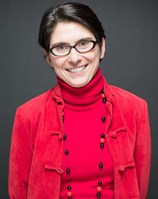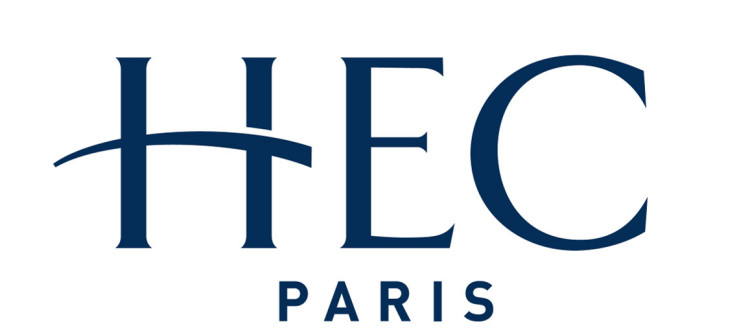- Learning
Executive Learning for Life
Life-long learning is central to HEC Paris’s strategic vision and lies behind its move up the FT world executive education rankings
To maintain their legitimacy, business schools and their clients face two fundamental challenges. First, embracing the radical transformation needed to stay relevant in a fast-changing world, and secondly delivering what society is asking from them: help in solving some of the world’s huge social and environmental problems.
These are complex challenges. With the coming of artificial intelligence, finding the right digital business model may be an existential one for many companies. And while ‘doing well by doing good’ is an admirable aim, the phrase oversimplifies the second challenge: finding a balance between social responsibility and corporate financial performance. The task for executive educators is to help their clients navigate this complexity.
The success HEC Paris has had in taking on this task is reflected in the School’s climb up the FT’s world rankings for executive education published this month (overall, the combined ranking sees HEC Paris climb to third place worldwide), an achievement which accompanies the equal fifth place ranking recently awarded by QS for HEC’s Executive MBA.

“Today companies talk about transformation more than change,” says Nathalie Lugagne, Affiliate Professor and Associate Dean in charge of the HEC Paris Executive Education. “There is a real need for companies to transform to stay relevant. What we at HEC want to do is to form long-term relationships with companies and with individuals to help them do that.”
At a time when the business environment is changing so fast, it is perhaps ironic that companies, long-criticised to being too short-termist, are more and more ready to take a longer-term view – realising that only by thinking long term can they build the human capital, develop the talent, and create the agile leadership they will need to succeed in an ever-changing future.
This new outlook chimes with what Lugagne describes as HEC’s “overarching principle” in terms of strategic vision: lifelong learning. “Our mission,” she says “is to accompany businesses over the long term – their managers, their executives – in the development of their skills at the individual level, and the development of their transformation projects at an organizational level.” This approach compliments the strengths highlighted in the FT rankings, which found HEC to be very strong in teaching methods, faculty, developing new skills, and in learning aims achieved.
Our mission is to accompany businesses over the long term in the development of their skills at the individual level... and their transformation projects at an organizational level
Designing its strategy, HEC undertook a major survey of clients and prospects to ascertain their needs. “This led,” says Lugagne “to this vision of lifelong learning – accompanying both individuals and companies to update skills, to adapt, to innovate, to widen their perspective.” And on the part of the business school, “that means that we also need to innovate continuously ourselves, and to make sure that we really answer these new needs.”
The survey identified these four areas of leadership development companies saw as priorities:
- Personal development. The need to improve soft skills and leadership capability in order to influence and motivate teams and operate effectively in a fast-changing new environment.
- Leading a multi-generation workforce. In particular, the need to learn how to better manage and lead the younger generation.
- Navigating transition. The need to help executives through career changes, from first taking a leadership role, to post-retirement life, to maybe transiting to the non-profit sector.
- Customization and personalization. Customization of content, both for individuals and for companies, to deliver learning that has a specific impact. “This is tricky, as you can imagine,” says Lugagne. “It works by diagnosing the strategic context and competency needs of companies, identifying blocks of competencies and designing customized learning paths, and measuring the impact to make sure that the learning we deliver really answers their needs.”
Inevitably HEC’s strategic vision has had to look at lifelong learning from the perspective of a world increasingly driven by artificial intelligence, where human capital will be augmented by machines. Already a leader in digital transformation, the School now incorporates content around the technological and human aspects of AI into its programs.
I think companies are quite lost because they need to anticipate the jobs that will exist tomorrow
“I think companies are quite lost because they need to anticipate the jobs that will exist tomorrow,” says Lugagne. “For companies to adapt to all these changes, they need strong skills. People that are engaged, with a high level of motivation. So, more than ever, we need to invest in our current human capital to make sure that they will adapt. Because they are the ones who will be able to answer the needs of the market in 10 or 15 years,” says Lugagne. “And as a School this means that we need to update and renew our offer continually.”
Returning to the idea of business schools delivering what their clients ask for and businesses delivering what society is asking from them, there are two areas where HEC Paris is a world leader. First, in its focus on entrepreneurship, and secondly its focus on sustainable development and socially responsible business.
“Entrepreneurship is part of our DNA,” says Lugagne. Over the last few years the School has worked with start-ups, entrepreneurial ecosystems, and incubators like Station F, and this has helped it bring an entrepreneurial and intrapreneurship mindset to its programs. Here, one notable success has been the new Online Master's in Innovation and Entrepreneurship, whose first cohort graduated this month. This flagship program is delivered to people all over the world. Interestingly, of the first 117 graduates, 73 made the physical journey to a graduation event in Paris. “A signal of the commitment of these people. I mean, it is a community,” observes Lugagne.
Creating a fully online Master’s degree program has been a major achievement and essentially a ‘start-up’ for HEC itself. The imperative now is to use the data collected to adapt and improve the learning experience, personalise the learning journey for each individual, and to understand more in terms of learning analytics “how human beings learn online, how they memorise information, and how we can make future online programs even more effective.”
HEC Paris’s commitment to socially responsible business and sustainable development was recently underlined by the creation, supported by alumnus Hubert Joly, founder of Best Buy, of the Joly Family Endowed Chair in Purposeful Leadership. Rodolphe Durand, the Director of the Society and Organizations Center (SnO) has been named as the inaugural Chair holder. Critically, at a time when the democratic free market system is coming under attack, as well as dealing with the issues of social responsibility and climate change, the endowment will address the broader challenges facing 21st-century capitalism, offering a European perspective on how business can be a part of the solution rather than part of the problem.
The executive education team is also designing a new program, combining online learning and sustainability, called ‘Sustainable Transformation Management’, which will focus on understanding how sustainability is transforming business and the way people do business today. Lugagne believes companies will respond well to this initiative because they are increasingly aware how CSR issues relate to their very survival and because they need to “attract and retain young talent, smart people, who want to do something that can have a positive impact on the world.”
As far as opportunities and challenges ahead, HEC is trying to encourage a more diverse range of participants, and also to ensure its high-quality executive education offerings penetrates further down into large companies as well as out to SMEs.
To attract more women participants HEC is focusing on degree programs, and aims to develop scholarships for different targets such as women entrepreneurs, NGOs, and people coming from emerging countries particularly in Africa.
A way to reach deeper into the organizations and to smaller companies is of course through online learning
“A way to reach deeper into the organizations and to smaller companies is of course through online learning,” says Lugagne. “We are on the verge of announcing a new online platform with other schools in France (École Polytechnique and Sciences Po). This will cover political sciences, human sciences, technology, AI, and so on, as well as reaching middle managers in companies to tackle issues of innovation, new digital types of leadership, new kinds of organizations.” Although largely online, it can be ‘blended’, combining sessions with supervisors to help participants apply the learning to their own projects.
This will build on the strength HEC already has in the SME sector, where, with its reputation in entrepreneurship, it has designed programs specifically for the Chief Executives of small and medium sized enterprises, both in France and also in some regions like Martinique where there are few local executive education providers.
Commenting on HEC’s recent move up the FT and QS global executive education rankings, Lugagne says: “We are quite happy with that news. I think it's the result of definition of the strategy and the implementation of strategy, and it now pays back.” By putting lifelong learning at the heart of its strategy the School has made a bold but timely move that positions it well for a future where the business world is sure to be characterised by continuing uncertainty and rapid change.
ARTICLES YOU MIGHT LIKE
VIEWPOINT
For Thomas Misslin, transformation rather than training is the aim of executive education at emlyon business school
DEVELOPING LEADERS QUARTERLY MAGAZINE AND WEEKLY BRIEFING EMAILS


































